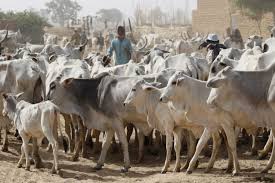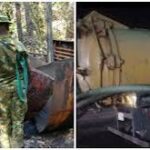The intensifying conflict between herders and farmers in Benue State has left over 200 people dead in a series of coordinated attacks, with survivors and experts calling for urgent action amid an unfolding humanitarian emergency.
The violence reached its peak on June 13, when gunmen invaded communities across the state, attacking markets, homes, and religious centers. In Yelewata, Guma Local Government Area, more than 107 people were reportedly killed in a single day. Victims included women and children who had sought refuge inside St. Joseph Catholic Church.
Mr. Raphael Shivil, a survivor of the Yelewata attack, described the devastation in an exclusive interview with Nwafomedia.
“They came in the night and set everywhere on fire. People were burned alive, even in the church. Our people are homeless now; the IDP camps are full. Many are sleeping in unfinished buildings, school classrooms, and even under trees,” he said.
This tragedy adds to the growing number of casualties in the state. According to security analyst Kabir Adamu of Beacon Security and Intelligence Limited, over 1,043 people have been killed in Benue between May 2023 and May 2025. The violence stems from longstanding tensions between nomadic Fulani herders and sedentary farming communities.
“The conflict is being driven by environmental degradation, resource scarcity, and climate change,” Adamu explained. “These factors are pushing herders southward into densely populated agricultural regions, where clashes become inevitable.”
While farming communities have consistently blamed Fulani herders for the attacks, Fulani representatives have denied involvement. Speaking to the BBC, Baba Othman Ngelzarma stated, “Our people are not behind the Benue killings. Yes, there are unresolved issues, but we don’t authorize attacks or killings.”
However, the traditional ruler of the Tiv people, Chief James Ayatse, presented a different view during President Bola Tinubu’s recent visit to the state. “It is not herders-farmers clash; it’s a calculated, full-scale genocidal invasion and land-grabbing campaign that has lasted for decades,” he said.
The President’s visit drew criticism for excluding meetings with Fulani leaders, a decision some observers say highlights the sensitivity and complexity of the conflict.
The humanitarian situation in Benue is dire. Thousands have been displaced, and many now live in overcrowded IDP camps with little access to food, clean water, or medical care. Survivors like Mr. Shivil are appealing to the government and aid agencies for immediate support.
“We are suffering,” he said. “The state government is trying, but it’s not enough. We need help now.”
Despite federal and state-led security efforts, including the deployment of Forest Guards and past Joint Task Force operations, experts argue that these measures have not adequately addressed the crisis.
Makurdi-based public affairs analyst, Sam Philip, criticized the federal government’s inaction. “There has been too much focus on the insurgency in the northeast while the Middle Belt is left to burn. That neglect is why the violence persists.”
A previous proposal by former President Muhammadu Buhari to establish national grazing routes was rejected by several southern states, further complicating efforts to find a lasting solution.
Mr. Adamu recommends a balanced approach, combining enhanced security deployment with long-term economic strategies such as designated grazing lands. “The solution must be both military and developmental,” he said. “Otherwise, we’ll continue to bury our people.”
Fresh reports indicate that attacks are still ongoing in some parts of Guma, Logo, and Katsina-Ala LGAs, with security forces stretched thin.
Nwafo continues to monitor the situation closely and provide timely updates as events unfold across the state.








